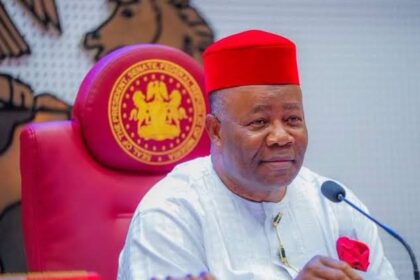Vice-President Yemi Osinbajo on Wednesday highlighted some of the plans being put in place by the Federal Government to revamp the nation’s economy currently in recession.
While he said an Economic Recovery Growth Plan upon which the 2017 budget was based would be launched in February, he added that the government was considering using the huge money with pension administrators to finance the nation’s infrastructure.
According to a statement by his Senior Special Assistant on Media and Publicity, Mr. Laolu Akande, the Vice-President spoke at different events as the head of the Nigerian delegation to the World Economic Forum holding in Davos, Switzerland.
While speaking at a Business Interaction Group on Nigeria attended by foreign investors, Osinbajo was said to have told his audience that the newly-developed Economic Recovery Growth Plan of the present administration was designed to take the country out of recession.
He added that in the long term, the plan would continue to grow the economy.
Osinbajo said the planning of the 2017 budget was based on the ERGP, adding that the plan would be formally launched next month.
He noted that the present administration was confident about the recovery of the economy.
“It is not difficult to get out of where we are if we understand why we are where we are,” he said.
Osinbajo also said the present administration was committed to investing in infrastructure development more than ever before.
To this end, he said government would ensure that 30 per cent of its budgets were allocated to capital expenditure.
The Vice-President also disclosed that the Federal Government was working on how to utilise the nation’s pension funds to finance infrastructure in the country.
“To do this, we have to first de-risk such financing models for infrastructure,” he said.
Osinbajo also cited the example of the Federal Government’s Social Investment Programme as some of the steps being taken to reposition the country.
“It is about investment in people, in their skills, in youths, that we have a N500bn allocation in our budget last year and proposed for this year also.
“It is an investment in education and educating large numbers of people in a short time, it’s a radical thing to make that kind of serious investment in education,” he said referring to the N-Power scheme’s training component for young graduates.



